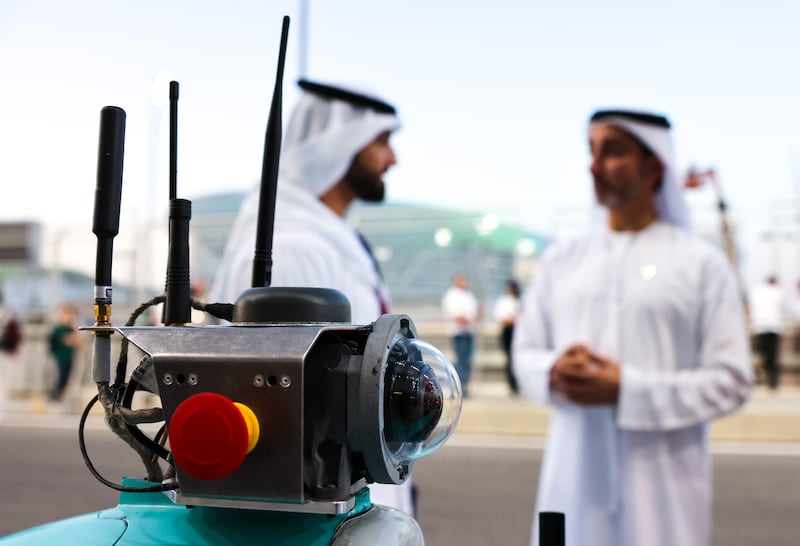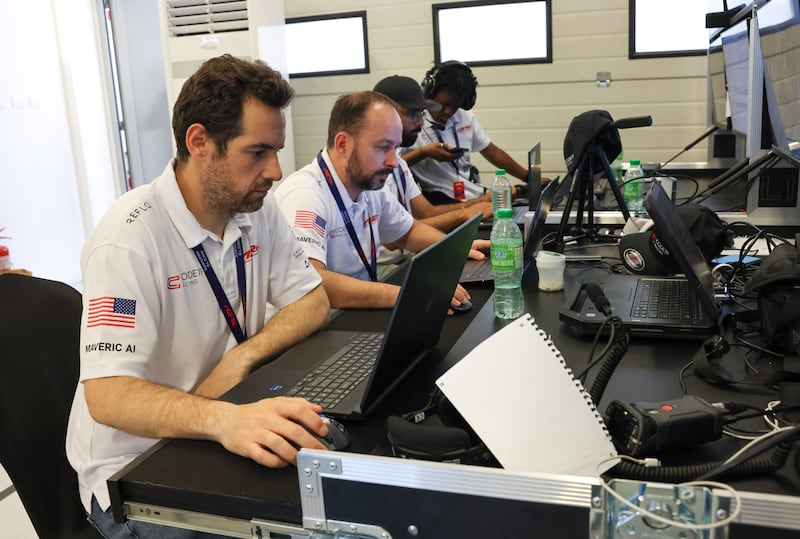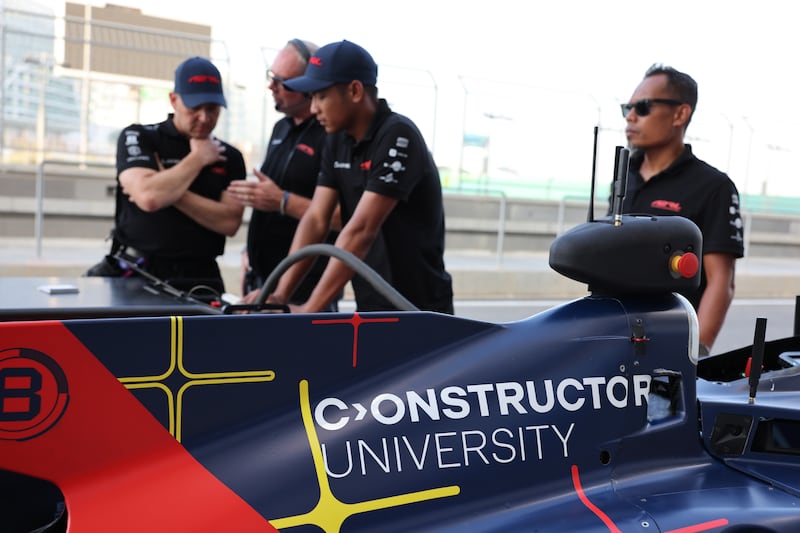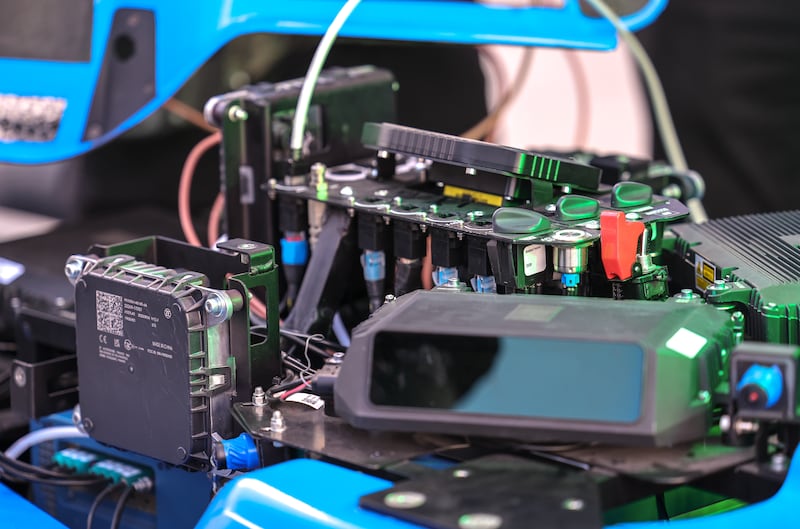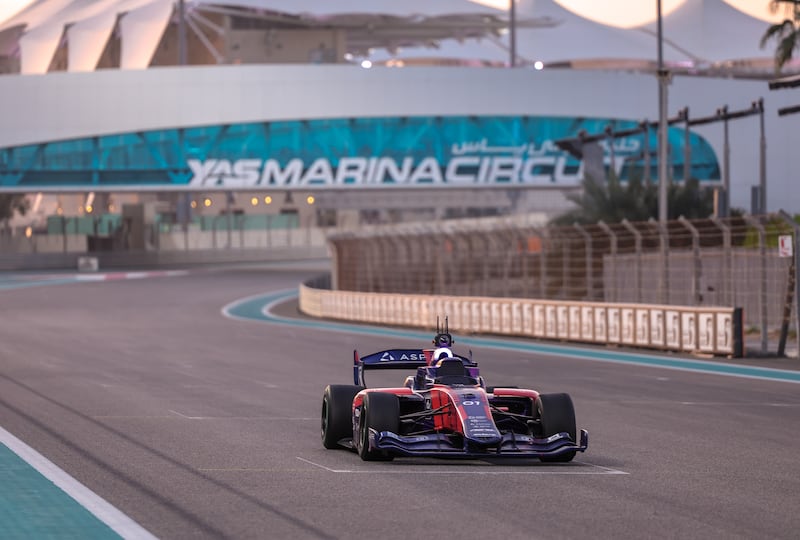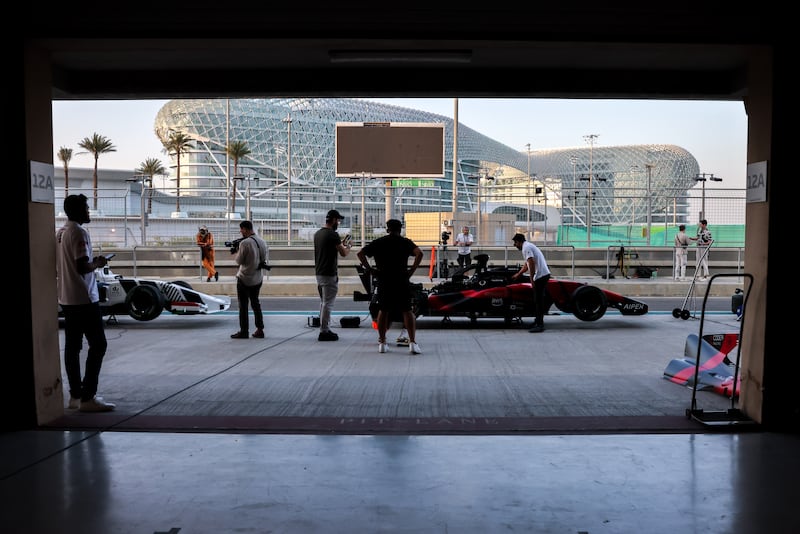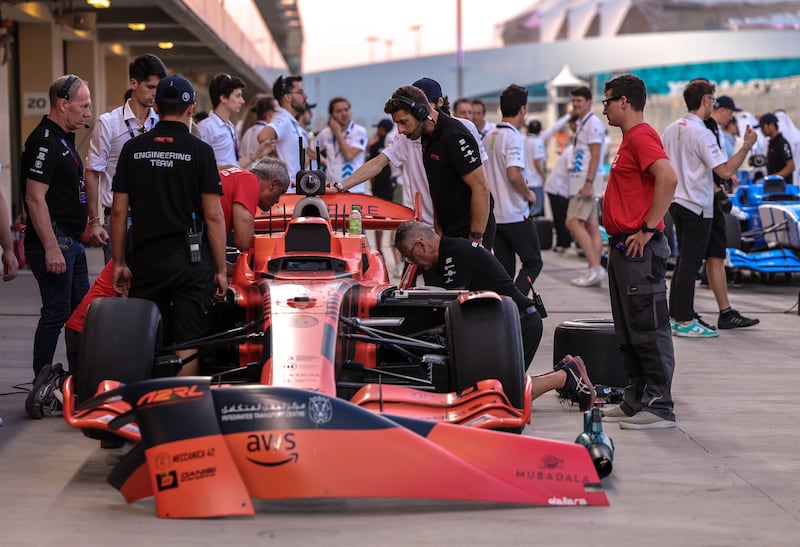One of the main goals of a new self-driving race car league in Abu Dhabi is to help reduce the number of road accidents around the globe, said a senior figure.
On Saturday, teams from across the world will be competing in the event, the first in the UAE.
Self-driving cars will take to a track that is more used to household Formula One stars such as Lewis Hamilton and Max Verstappen speeding around, than AI-driven cars.
However, there is a much bigger prize at stake than mere track glory for the organisers of the Abu Dhabi Autonomous Racing League (A2RL).
“Why we are doing it is because we want to put a big focus on road accidents,” said Tom McCarthy, executive director of Aspire, organiser of the A2RL race and the programme management and business development arm of Abu Dhabi's Advanced Technology Research Council.
“Over one million people are killed each year on the roads each year globally. It's a number that remains stubbornly high.
Abu Dhabi's self-driving car league kicks into gear
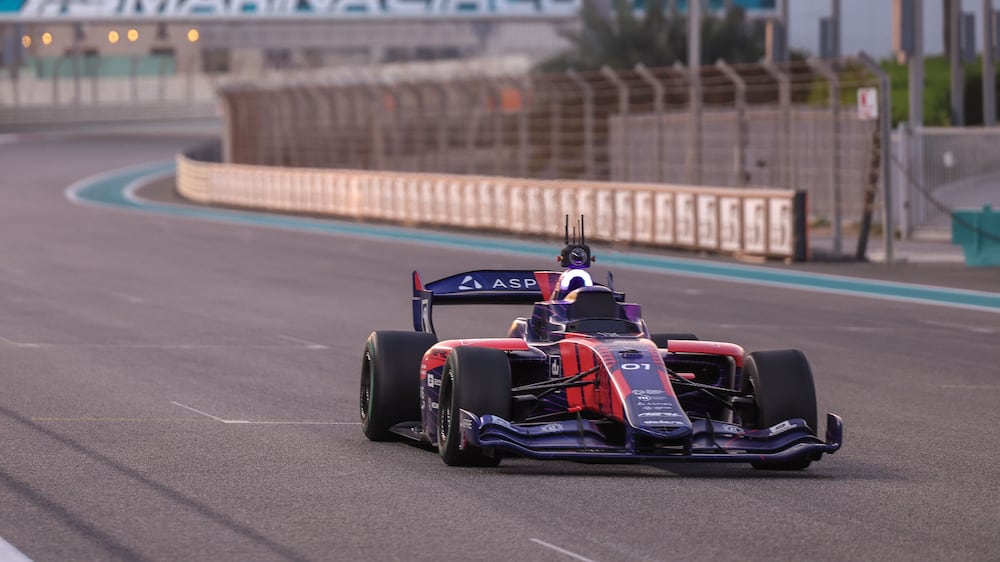
“What we find is the focus from the car manufacturers is on what happens after the accident, or what they call secondary or reactive safety. But how about trying to stop the accident occurring in the first instance?”
Every year the lives of about 1.19 million people are cut short as a result of a road traffic crash, according to the World Health Organisation.
Up to 50 million more people are said to suffer non-fatal injuries, with many incurring a disability.
Mr McCarthy suggested the data collated in the creation of the self-driving cars would go a long way in identifying how to avoid possible accidents in the first place.
“We are trying to first of all test these technologies in extreme conditions and also bring along the public to show them what's happening,” he told The National.
“We need to bring people inside the experiments to test what can be done in the most extreme conditions and then to build confidence in the public.
“We want to have a situation where, 10 years from now, the number of fatalities has greatly gone down and that we have made a small contribution to that.”
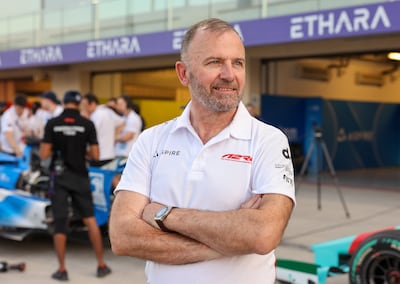
Race to the top
Teams made up of coders and engineers from the UAE, Germany, Italy, Singapore, US, Hungary and China will compete for prizes worth a total of $2.25 million during the event on Saturday.
All the teams involved will be operating a Dallara Super Formula SF23, built by Dallara, which features self-driving capabilities designed specifically for A2RL.
The car's top recorded speed is 240 kph, according to Mr McCarthy.
Last July, the UAE Cabinet approved the first preliminary national licence for self-driving cars, and a few months before that, a fleet of five electrical cars mapped out roads across Dubai for the eventual unveiling of autonomous public transport.
The value of the global autonomous vehicle market is predicted to top $1.8 trillion by 2030, from close to $94.4 billion in 2021, growing at a compound annual rate of about 39 per cent, according to data from Precedence Research.
“This is one of the key frontiers, besides the fact that we are developing the concept of safety using autonomous solutions, we are just scratching the surface of AI sport right now,” said Stephane Timpano, chief executive of Aspire.

“It's the beginning of a very interesting journey.
“One of the ambitions is for us [in Abu Dhabi] to become a point of reference when it comes to autonomous sport.”
One of the challenges autonomous racing faces is a public who are sceptical about the sport, he said.
“People are sceptical because they don't see the driver, they don't see the rock star, if you will,” said Mr Timpano.
“But we're going to put on amazing shows. It's only going to get better and better [as the technology advances].”
Does he ever see a time when driverless racing will challenge F1 in terms of popularity?
“I think it can be a complement to it, because you can certainly push the limits above what human can do,” he said.
“You can take the risk, because you're not putting any lives in danger [by pushing the unmanned car to its limits].”

